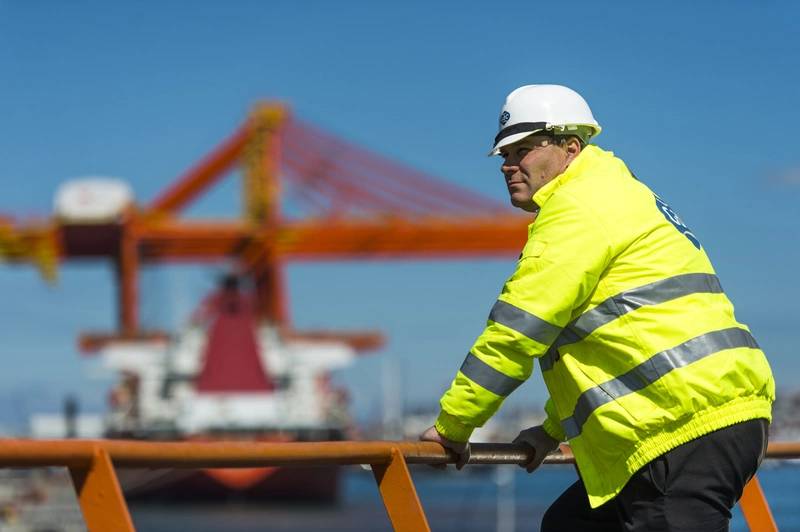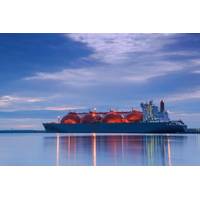Nigeria’s Refining Revolution is Reshaping West Africa’s Energy Landscape
The launch of the Dangote Refinery near the Port of Lagos presents an exciting opportunity to transform the energy and shipping markets in West Africa. And it stands to boost Nigeria’s role as an influential player in the global oil industry, fostering economic growth and regional development.
Nigeria’s standing in the global energy landscape is getting a boost with domestic refining capacity expanding in 2025. The Dangote Refinery near Lagos presents a transformative opportunity for Nigeria’s economy and is expected to reshape global tanker routes and trade flows.
The country has long been a leading exporter of crude oil, taking advantage of its abundant natural reserves. As the first sub-Saharan African country to join the Organisation of Petroleum Exporting Countries (OPEC) in 1971, Nigeria remains the most populous member of the group, with a population exceeding 222 million.
Today, it is Africa’s largest oil producer and the 11th largest globally. According to the Nigerian Upstream Petroleum Regulatory Commission’s 2023 annual report, as of January 2024, it had nearly 37 billion barrels of oil and condensate reserves.
For decades, GAC has supported tankers calling at Nigerian ports and terminals with its portfolio of integrated ship agency, husbandry and logistics services. That includes a newly-opened state-of-the-art Inland Container Depot in Lagos where containers can be stripped or stuffed and last mile delivery arranged to any vessel in Nigerian waters.
GAC is the only agency in the country with its own seafarer recruitment service. At any given time, it has 250-300 crew onboard and can draw from a pool of 600 seafarers of all ranks up to Captains and Chief Engineers.
Closing the Refining Gap
Despite its vast resources, Nigeria has historically relied on imported refined products due to insufficient domestic refining capacity. The $20 billion Dangote Refinery, more than a decade in the making, is now poised to change that.
Since operations began in January 2024, the refinery has turned Nigeria into a net exporter of jet fuel, naphtha, and fuel oil. Projections indicate that the country could export 50,000 bpd more gasoil than it imports this year, with exports expected to triple by 2026. When fully operational, the refinery will have a capacity of 650,000 bpd, significantly reducing Nigeria’s reliance on imported refined products.
Since operations at the new refinery began, GAC has seen the number of tankers it serves rise by about 21%. Support for vessels calling to offload crude oil or load up refined products includes updating owners, charterers, brokers and operators on the latest port operational information including potential delays and turn-around times, enabling them to make informed, balanced voyage calculations.
Sustainability and Environmental Considerations
Environmental concerns remain a critical focus. According to Financial Nigeria, the Dangote Group has undergone rigorous environmental approval processes with the Ministry of Environment. The refinery also complies with emissions standards set by the World Bank and the European Union. In 2017, it acquired advanced equipment from Elessent Clean Technologies (formerly DuPont Clean Technologies) to minimise its environmental impact.
What’s more, reducing the nation’s reliance on fuel imports from Europe and America will decrease the greenhouse gas emissions associated with maritime transportation, aligning the project with global sustainability goals.
 Image courtesy GAC
Image courtesy GAC
Boosting Refined Exports
Johan Thuresson, GAC Nigeria’s Managing Director, says: “Before Dangote, Nigeria heavily relied on imported refined products. Now, the country is positioned to become a major exporter of clean petroleum and fuel oil. This shift will enhance Nigeria’s role in the global tanker market and stimulate growth in West Africa’s logistics and transportation industries.”
Increased refining capacity is expected to alter trade dynamics in the region as neighbouring countries adjust their import strategies in response to Nigeria’s growing exports. This change will create new trade routes and reshape tanker deployment across the region.
The Nigerian National Petroleum Corporation was expected to supply half of the Dangote Refinery’s crude oil requirements initially. However, it only delivered about one-third of the anticipated volumes in the first half of 2024. Consequently, Dangote has begun sourcing additional crude supplies from international markets, particularly the United States.
“When the refinery was first envisioned, the aim was to use domestic crude oil for energy security,” says Thuresson. “However, economic realities have shifted. With U.S. crude currently priced lower than Nigerian crude, the country is now exporting its high-quality crude while refining more cost-effective imports.”
This transformation is expected to increase tanker traffic, significantly boosting Nigeria’s shipping and logistics sectors.
The refinery is currently estimated to be running at 45% of its capacity, at most. Looking ahead, a short-term pick-up in crude imports of crude oil is on the cards. It is harder to predict however what will happen longer term, though some scenarios suggest there may eventually be a pipeline suppling the crude oil direct to the refinery. At this stage, it is difficult to foresee how much of the products Dangote refines will be exported and how much will feed domestic demand.
The country’s tanker market is expected to evolve as the refinery reaches full capacity. A decline in crude oil exports may reduce demand for VLCCs and Suezmax vessels, but an increase in refined product exports would probably drive-up demand for medium-range and long-range tankers, facilitating new trade routes to Europe, South America, and Africa.
Changes in oil flows will heighten competition for shipping services in Nigeria and throughout West Africa,” Thuresson notes, highlighting the region’s growing importance in the global energy trade. “Through its network of office and agents throughout the region, GAC can help support tanker operators in emerging oil countries that are not currently large exporters today but have the potential to grow.”
Infrastructure Challenges
Despite a promising outlook, Nigeria's oil and tanker markets are facing significant infrastructure-related challenges.
Ageing pipelines, jetties, and storage facilities have already impacted both crude and refined product exports. In 2024, maintenance delays resulted in a substantial decrease in production capacity, raising concerns about the stability of future exports.
"While refining operations are expected to stabilise and attract further foreign investment, ongoing upgrades to infrastructure will be essential for ensuring long-term success,” says Thuresson.
To fully capitalize on the advantages offered by the Dangote Refinery, Nigeria must prioritise modernising its oil transportation and storage systems. Improved infrastructure will be crucial in maintaining competitive export capabilities and solidifying the country's position as a key player in global energy markets.
As stakeholders assess the long-term effects of the Dangote Refinery, the transition from crude oil exports to refined product trade is already transforming West Africa's energy landscape. With a growing demand for product tankers and new trade flows emerging, Nigeria is well-positioned to enhance its role in the global energy market, driving economic growth and industry transformation for years to come.












